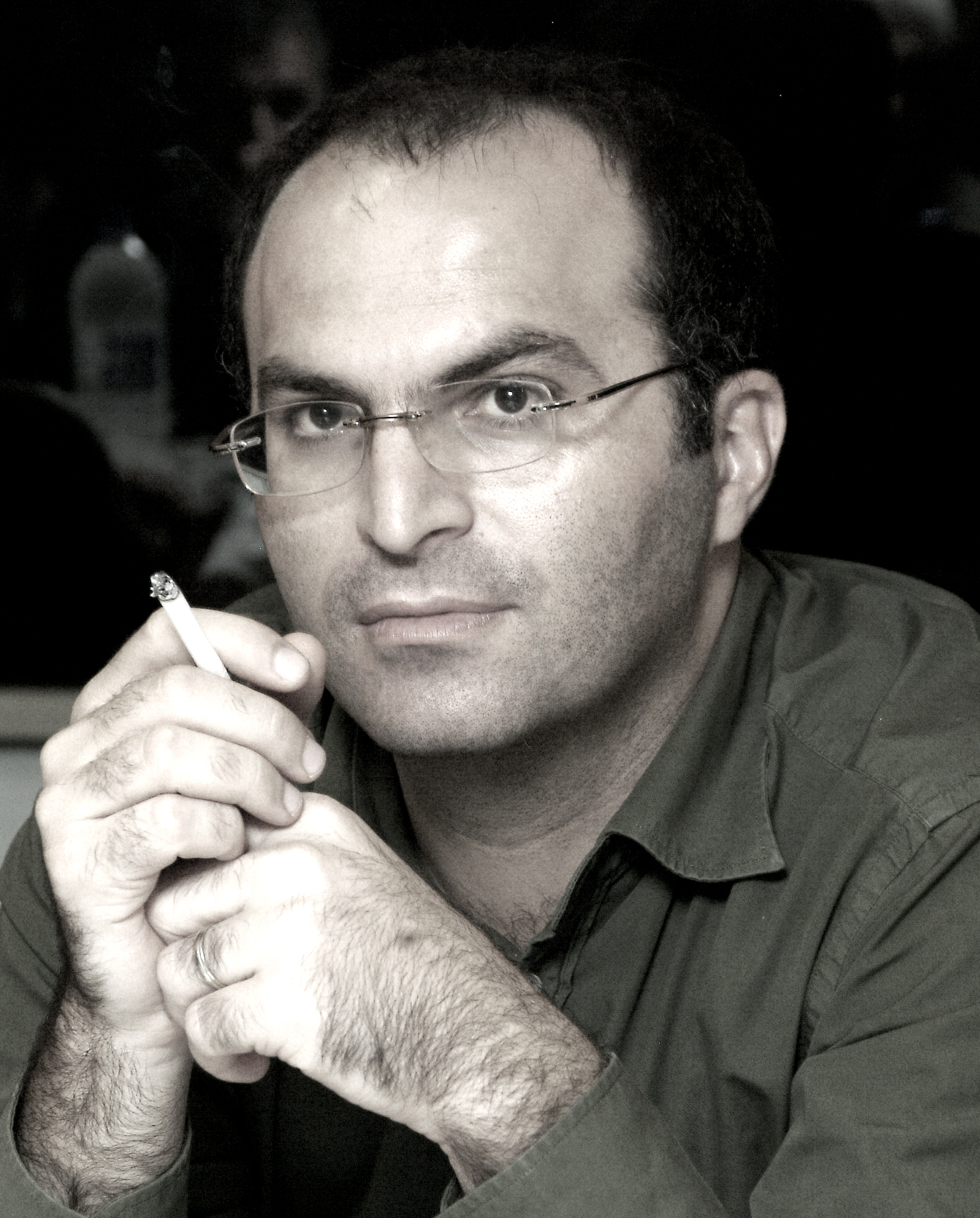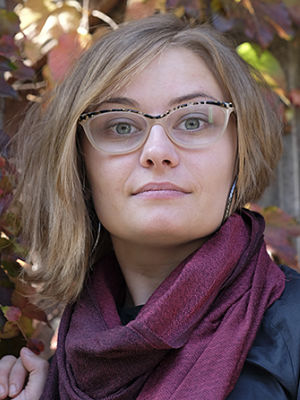The Rifle / Tüfek
On the wall hung a rifle. A brown rifle. Who knew how many years it had been there. From time to time, my father took it from between the deer, who seemed spooked, and cleaned it, blowing away the dust. He gazed at it, maybe daydreaming, maybe remembering old times, before getting up and hanging it back in its place. The direction of the rifle never changed. Its long eyes seemed to stretch beyond the window, scanning the faraway mountains, which rolled lazily over, their bellies in the air. A forest, wild and willful, swelled at the skirt of the mountains. The enormous trees stood arm-in-arm, their sprawling leaves warm and inviting like the tent of a nomad. The rifle focused on the red deer wandering the forest, their eyes glistening.
On the wall hung my mother’s youthful memory—a carpet she had woven from a million intertwining daydreams. Framing these countless silk reveries was an ornate border, its deep red and light brown rings gently embracing one another. This interlocking pattern gave way to the color of the night sky. A twilight hue. With its billowing clouds, it filled mere handfuls of space. Then a forest overtook the scene. No two leaves were alike in this strange wood—they were of all shapes, sizes and colors. I would get lost—amazed—in the sheer array and diversity of the forest.
Was I a guest in a strange house? Or had we invited in a giant mountain once upon a time? I had no way of knowing. Silently, the clouds moved in from the distance.
Evening descended upon the sky in this silk carpet of my mother’s girlhood dreams. Yet in the wood, daylight lingered, due possibly to the density of the immense trees, beneath which stood two crimson-eyed deer. They looked at one another. “The small one is her son,” said my mother. The fawn stood on still-puny legs in front of the doe.
I imagined my mother sitting at our foggy window for years weaving the carpet, her sad eyes reaching for the mountains. Along the teasing skirts stretched the forests, through which the red deer meandered easily. There lay her inspiration. Nevertheless, this intensive watching dug sad trenches in her face—from her own nature or perhaps from the weight of all these dreams. Melancholy pervaded the carpet, and each day a different expression passed over the faces of the doe and her son.
Even more so, it was fear residing in the faces of the deer and marring the human heart—a result of the rifle’s proud, menacing demeanor.
And only on their faces? In the curve of their knees, the arch of their backs, the crimson wag of their tails, in the moist black of their noses. The fear was embedded especially in their hooves, planted firmly in the bushes. Its traces grew deeper, little by little, every day, and became unbearable. And so would the dreadful vulnerability of the two. This vision emerged from the wall, seeping into the movements of each of us.
Many times my mother got up and left with a guilty feeling, as if the mother and fawn were at fault. The silence inhabiting the carpet then echoed throughout the house.
My father would sink into his chair, relying on his cap to block it out. He drifted to sleep.
These were the deep-blue hours of the sky. The faraway deer sought a leaf—one bigger than themselves—under which to pass the night.
I would on misty April evenings sit in the cool garden, my back to that foggy window, watching the mountains. But I couldn’t comprehend their childish game; how these enormous, fat-bellied lords of the forest hid from time to time. Was I a guest in a strange house? Or had we invited in a giant mountain once upon a time? I had no way of knowing. Silently, the clouds moved in from the distance.
When the mist sank like this, the peaks seemed higher than usual. They seemed to slice into the haze. And at the base of the mountains, the sage forests disappeared. The endless fields too, vanished in the mist. At times like these, my mother insisted we head inside.
Those misty April evenings. As I took in the distant scene, I knew that the rifle’s long eyes crept from our foggy window. Running along the arousing curves of my back, it looked on with longing. At me, and perhaps—who knows—the crimson eyes of the faraway deer. A cool, tingling feeling spread from my ears. The rifle fumed with rage, hanging there.
There. Over the silk carpet my mother wove from her dreams, where doe and fawn quivered—their minds locked in fear.
![]()
TÜFEK
Duvarda bir tüfek dururdu, asılı. Kahverengi bir tüfekti, kim bilir kaç yıldır oradaydı. Zaman zaman onu birbirinden ürkek ceylanların arasından alır, temizler, üzerine yağmış tozu üfler, bir de bilmem eski zamanların anısıyla, bilmem dalgınlıkla bir zaman seyreder, sonra götürüp yerine asardı babam. Tüfeğin yönü değişmezdi hiç. Sanki bu mağrur tüfekti, evimizin bulanık penceresinden upuzun gözlerini uzatır, uzakta göbeğini devirerek oturmuş Tembel Dağları’na sıra sıra bu dağların eteklerinde büyümüş arsız ormanlara. Bunda kol kola sıralanmış devasa ağaçlarla bu ağaçların, her biri bir Yörük çadırını andıran kavisli yapraklarına. Bir de bu iri gölgelikte ışıl ışıl gözleriyle dolanan kırmızı renkli ceylanlara bakardı.
Duvar, annemin bir genç kızlık anısıyla örülüydü. Annemdi, birbirine geçmiş binlerce hülya ile örmüştü bu halıyı. Bu sayısız ipek hülyayı, bir zencerekti, çevreliyordu. Koyu kırmızı ile açık kahverengi halkaları bu zencereğin, birbirine geçmemişti de, sarılmıştı sanki. Sonra bu sarılma, bir koyu gökyüzüne bırakıyordu kendini. Bir lacivert. Gerçi bu akşam rengi gökyüzüydü, içinde köpük köpük bulutlarla, ancak birkaç karışlık bir alanı kaplıyordu, halıda. Sonra bir orman başlıyordu ki bu tuhaf ormanda birbirine benzer iki yaprak bulunamazdı. İrili ufaklı yapraklardı yani, her biri ayrı renk ve biçimde. Böylece ben bu rengârenk yapraklara şaşkınlıkla dalar, hayretle, ormanın çeşitliğinin hayretiyle kalakalırdım.
Annemin gençlik hülyalarının bu ipek halısında, akşam, gökyüzüne inmişti. İri, sık ağaçlar yüzünden olsa gerek, orman, gündüzdü.
Ağaçların altında, kırmızı gözlü iki ceylan vardı. Birbirlerine bakan bu iki ceylanın, ana-oğul olduklarını söylerdi annem. Yavru ceylan annesinin önündeydi, çelimsiz bacaklarıyla.
Annem sanki, yıllarını almış bu dokumada, pencerenin önünde oturmuş, evinizin bulanık bu penceresinden mahzun gözlerini uzatarak Tembel Dağları’nı sıra sıra dağların nazlı eteklerinde boy atmış devasa ormanları, bu ormanlarda aheste gezinen kırmızı ceylanları seyretmiş. Bu ipek halıyı böylece örmüştü. Yine de, onun uzakları bu tedirgin seyri, kâh kendiliğinden, kâh bütün bu hülyaların ağırlığından, tutup hüzünlü bir koca yüz gibi çizgi çizgi. Kaplamıştı halıyı. Da ana-oğul ceylanların yüzünde. Her gün bir başka şeydi.
Tabii, tüfeğin mağrur ve tehditkar duruşundan olacak, bu ceylan yüzlerinde daha çok, insanın kalbini çizen bir korkuydu sezilen.
Hatta, yalnızca yüzlerinde mi? Dizlerinin kıvrımında, sırtlarının ürperişinde, kuyruklarının kızıl salınışında, burunlarının ıslak karartısında. Hele tırnaklarının çalıya gömülmüş kınalı sertliğinde bu korkunun. İzleri her gün biraz daha artar, sonunda iyice dayanılmaz bir hal alırdı da. Bunların bu korkunç korunmasızlığı. Evimizin duvarlarından bir hayal olur. Kalkıp tek tek hepimizin hareketlerine sızardı.
Böylece çoğunlukla annemdi, ana-oğul bu ceylanların sebebiymiş gibi kalkar, bir suçluluk duygusuyla giderdi. Bununla halıya sinmiş sessizliğin bir benzeriydi, yayılırdı eve.
Babam da, kasketi onu bütünüyle kapatabilecekmiş gibi, oturduğu sedire iyice gömülür, uykunun müridi olurdu.
Gökyüzünün lacivert vakitleriydi, bunda uzak ceylanlardı, geceyi altında geçirmek için, kendilerinden büyük bir yaprak ararlardı ormanda.
Ben de nisan aylarının puslu akşamlarında, evimizin serin bahçesinde oturur, yani bulanık o pencereye sırtımı verir, dağları izlerdim. Ama, bu tuhaf, çocuksu dağların alayıyla bilmezdim; kimi zaman bu göbekli, devasa orman efendilerinin kendilerini sakladıklarıydı. Ki bir yabancı eve konuk mu olmuştum? Anlayamazdım. Uzak, usul usul bulutlanmaya başlardı.
Böyle zamanlarda bulutların yeryüzüne indiğini, dağlar yüksekti, ilkin dağların buluta kestiğini, eteklerinde bunların, ak sakallı ormanlar bulunurdu, sonra bu ormanların yittiğini, ardından uçsuz bucaksız şu tarlaların sisle görünmez olduğunu. Bu yüzden evimize girmemiz gerektiğini söylerdi annem.
Uzakta olup bitenleri izlediğimde, yani nisan aylarının puslu bu akşamlarında bilirdim ki tüfek, evimizin bulanık penceresinden upuzun gözlerini uzatmış. Seyretmektedir beni. Sırtımın iştahlı kıvrımlarında böylece, kim bilir, uzak ceylanların kırmızı gözlerini, özlemle. Kulaklarımdan yayılan ürpertinin serinliği ile bir de. Öfkeyle kudurmaktadır yerinde, asılı.
Orada. Annemin gençlik hülyalarıyla nakşettiği ipek o halının üzerinde. Ana-oğulun akla zarar korkularıyla titrek.
Translator’s Note
I was attracted Faruk Duman’s “The Rifle” because it haunted me. When I first read it, the final paragraphs of the story echoed through my mind as I drifted to sleep. The misty mountains, the carpet, the rifle—each are endowed with a unique energy, yet they cannot coexist in harmony. An eerie tension fills the house, sinks into the characters, and emanates from the page. As with much of Duman’s work, it relies heavily on objects to relate the conflict at the heart of a story. In this way, I like to think, his work shows the emotional osmosis that occurs between us and our surroundings.
Faruk Duman’s style walks a fine line between poetry and prose. It reminds me of something I once read about the Japanese art form of sumi-e, or brush painting. The key of this art form is to convey the mood of a scene with a minimal number of brush strokes. Its power lies in its simplicity, and the same goes for Faruk Duman’s spartan prose. His sentences in Turkish are unassuming and leave much unsaid. What was the mother looking for there in the forest? Why did she feel guilty? Why was the back of the narrator “arousing”? As a translator, I found this to be an interesting task; I would have to communicate what I believed to be the author’s intent while also leaving room for readers’ interpretation.
Rendering Duman’s cadence in English presented a challenge, as English sentences contain particles, articles and other elements that make them longer than Turkish sentences. The process required reading aloud countless times, testing each sentence to see if it had a resonance similar to the original. I marked up hard copies, printed new drafts, and marked them up again. Of course, a translation never works the same way as the original, but it’s my hope that this rendering ultimately has a similar effect on readers.
 Faruk Duman was born in Ardahan in 1974. He graduated from Ankara University Faculty of Humanities with a major in Library Science. Afterward, he worked as a librarian for a time. His stories have been published in a number of magazines. His first book Seslerde Başka Sesler was published in 1997. His book Av Dönüşleri received the Sait Faik Short Story Award in 2000, and his book Keder Atlısı was awarded the Haldun Taner Short Story Award in 2004. He was awarded the Mehmet Fuat Essay Award in 2011 for his book Adasız Deniz. His book İncir Tarihi won the Yunus Nadi Novel Award in 2011. He currently works as an editor at Can Publications. His short story collections include Nar Kitabı, Sencer ile Yusufçuk and Baykuş Virane Sever. His novels include Piri, Kırk, Ve Bir Pars Hüzünle Kaybolur and Köpekler İçin Gece Müziği. He has also written a collection of essays entitled Tom Sawyer’ın Kitap Okuduğu Kulübe.
Faruk Duman was born in Ardahan in 1974. He graduated from Ankara University Faculty of Humanities with a major in Library Science. Afterward, he worked as a librarian for a time. His stories have been published in a number of magazines. His first book Seslerde Başka Sesler was published in 1997. His book Av Dönüşleri received the Sait Faik Short Story Award in 2000, and his book Keder Atlısı was awarded the Haldun Taner Short Story Award in 2004. He was awarded the Mehmet Fuat Essay Award in 2011 for his book Adasız Deniz. His book İncir Tarihi won the Yunus Nadi Novel Award in 2011. He currently works as an editor at Can Publications. His short story collections include Nar Kitabı, Sencer ile Yusufçuk and Baykuş Virane Sever. His novels include Piri, Kırk, Ve Bir Pars Hüzünle Kaybolur and Köpekler İçin Gece Müziği. He has also written a collection of essays entitled Tom Sawyer’ın Kitap Okuduğu Kulübe.
 Dayla Rogers first learned Turkish in high school as a participant in Rotary Youth Exchange. She continued language studies while earning a degree in history at the University of Michigan. After earning a master’s degree in education, she moved to Istanbul to pursue her dream of becoming a teacher trainer in Turkey. Over time she developed a passion for Turkish literature and translation. “The Rifle” is her first literary translation to be published. She currently teaches English at Marmara University.
Dayla Rogers first learned Turkish in high school as a participant in Rotary Youth Exchange. She continued language studies while earning a degree in history at the University of Michigan. After earning a master’s degree in education, she moved to Istanbul to pursue her dream of becoming a teacher trainer in Turkey. Over time she developed a passion for Turkish literature and translation. “The Rifle” is her first literary translation to be published. She currently teaches English at Marmara University.





